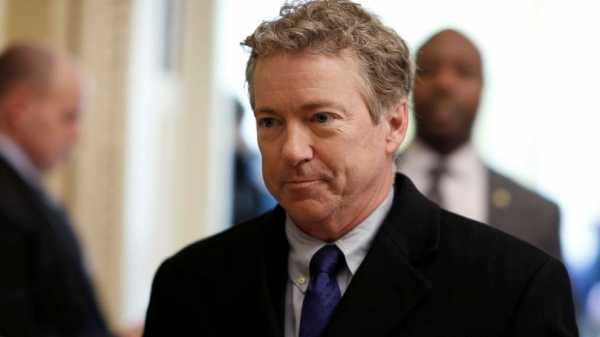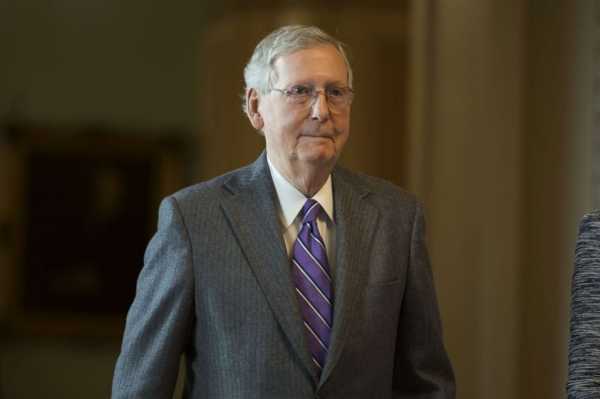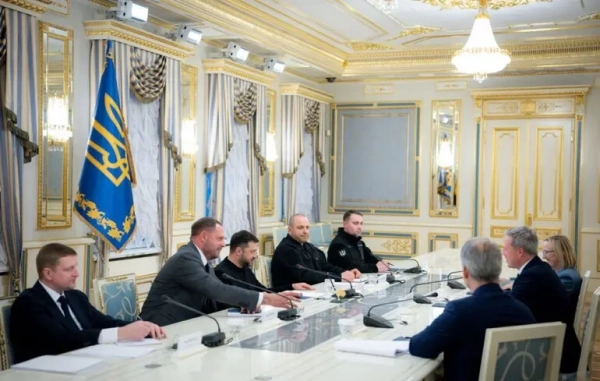
After House and Senate leaders reached a deal, the House approved the bill midday Thursday.
Thursday afternoon, Senate Majority Leader Mitch McConnell moved to end debate on the bill, triggering a 30-hour window senators can use to discuss it.
The debate time could be shortened if Paul and other senators unanimously agree to do so but it was unclear how far Paul would go to press his point.
If the whole 30-hour time is used, the earliest the Senate could vote to advance the so-called “omnibus” bill would be 1 a.m. Saturday morning.
The Senate would then have to wait even longer before taking any final vote to pass it.

Aaron P. Bernstein/Getty Images, FILESenate Majority Leader Mitch McConnell walks to his office at the U.S. Capitol, Feb. 15, 2018, in Washington, D.C.
The measure would fund the government through September 30, with Republicans hailing its large increase in military spending, $1.6 billion for border security and $600 million for election security resources.
What’s in, what’s out of vast spending bill
White House budget director Mick Mulvaney says President Donald Trump will sign the bill despite not getting more of what he wanted – including more money for a border wall.
“In order to get the defense spending primarily, (and) all the rest of our priorities funded, we had to give away a lot of stuff that we didn’t want to give away,” Mulvaney said.
Spending bill will stipulate CDC can study gun violence
Lawmakers close to agreement on $1.3 trillion spending bill to avoid shutdown
Sourse: abcnews.go.com






